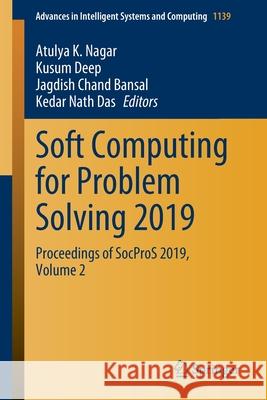Soft Computing for Problem Solving 2019: Proceedings of Socpros 2019, Volume 2 » książka
topmenu
Soft Computing for Problem Solving 2019: Proceedings of Socpros 2019, Volume 2
ISBN-13: 9789811532863 / Angielski / Miękka / 2020 / 224 str.
Kategorie:
Kategorie BISAC:
Wydawca:
Springer
Seria wydawnicza:
Język:
Angielski
ISBN-13:
9789811532863
Rok wydania:
2020
Wydanie:
2020
Numer serii:
000453356
Ilość stron:
224
Waga:
0.33 kg
Wymiary:
23.39 x 15.6 x 1.27
Oprawa:
Miękka
Wolumenów:
01
Dodatkowe informacje:
Wydanie ilustrowane











